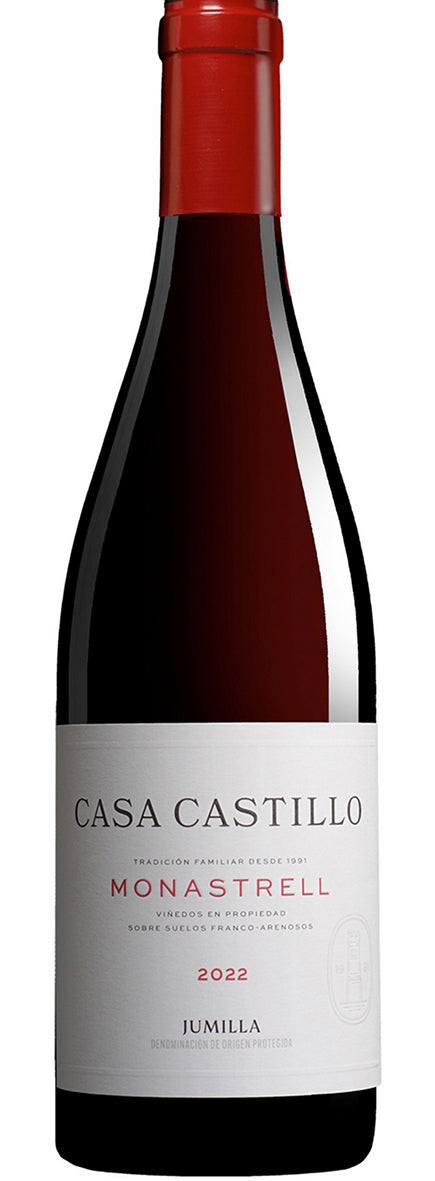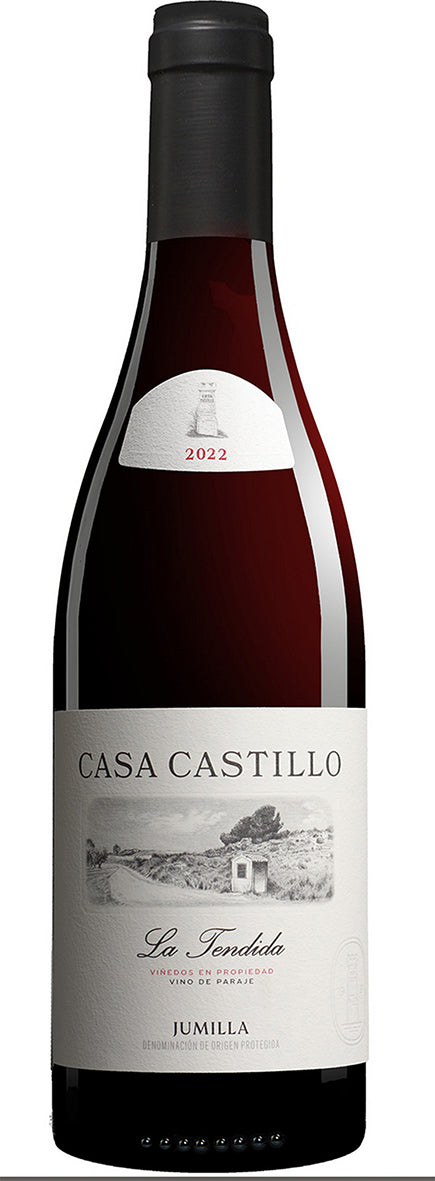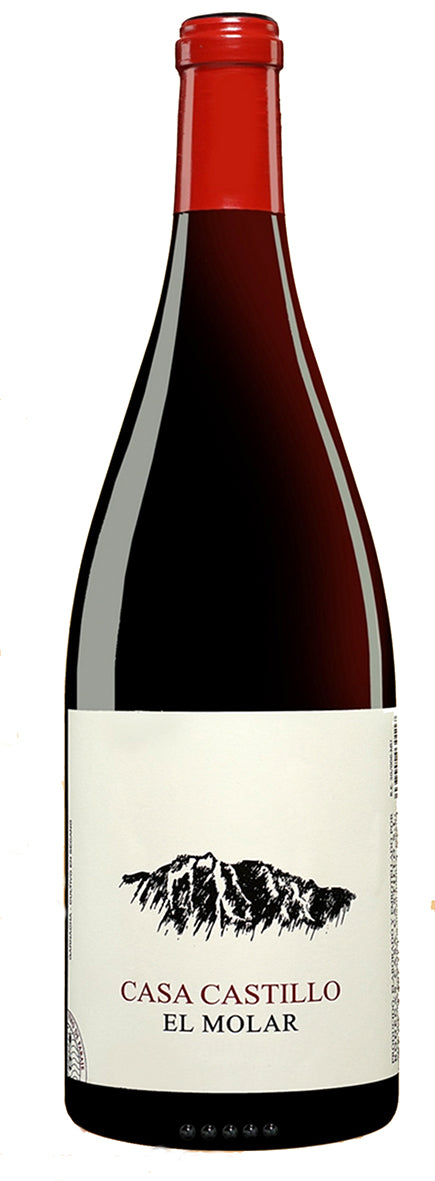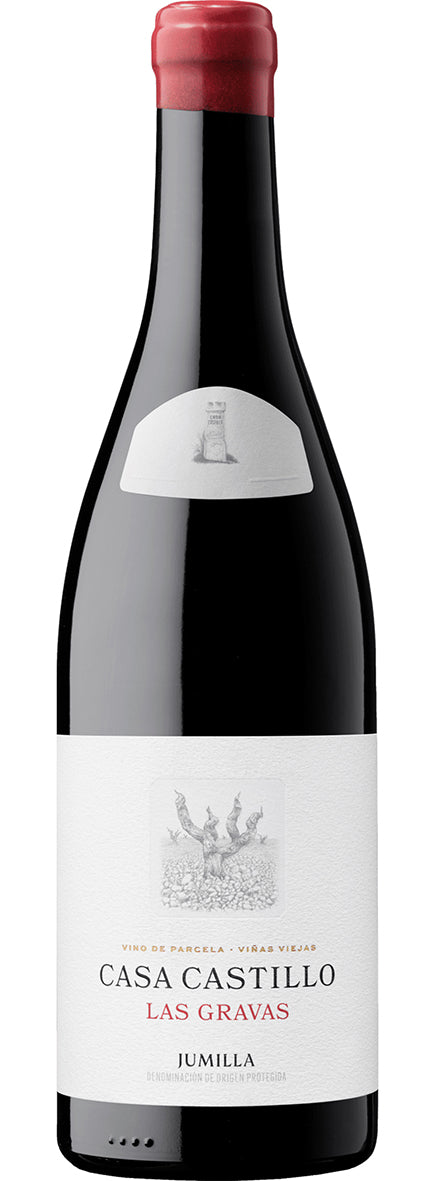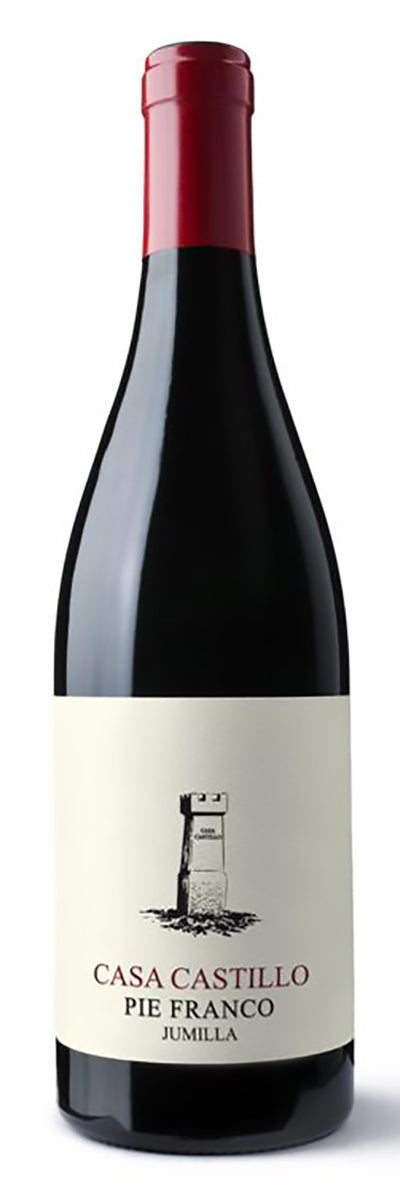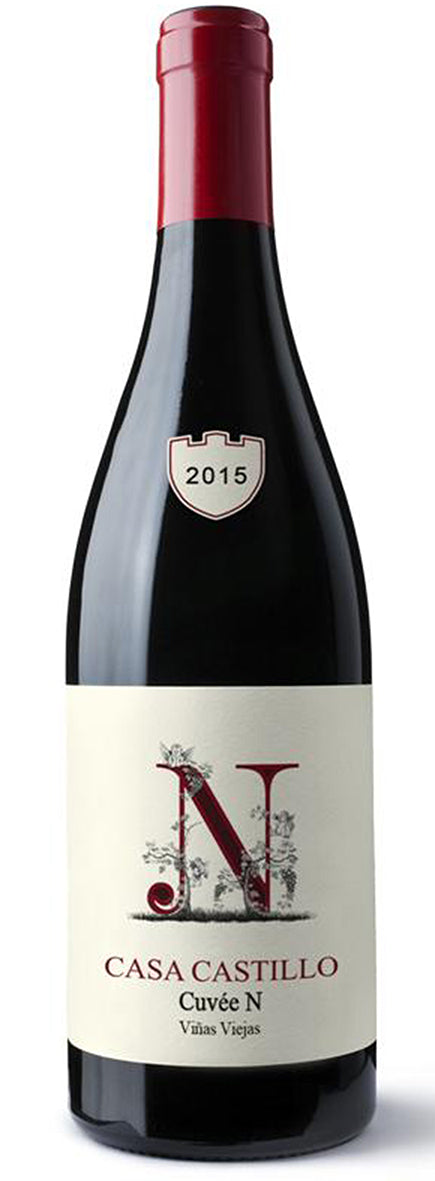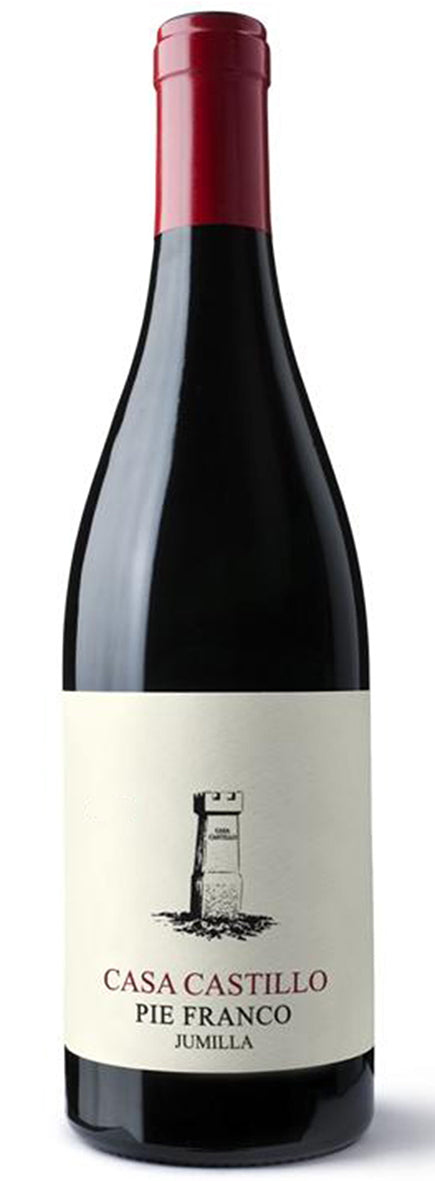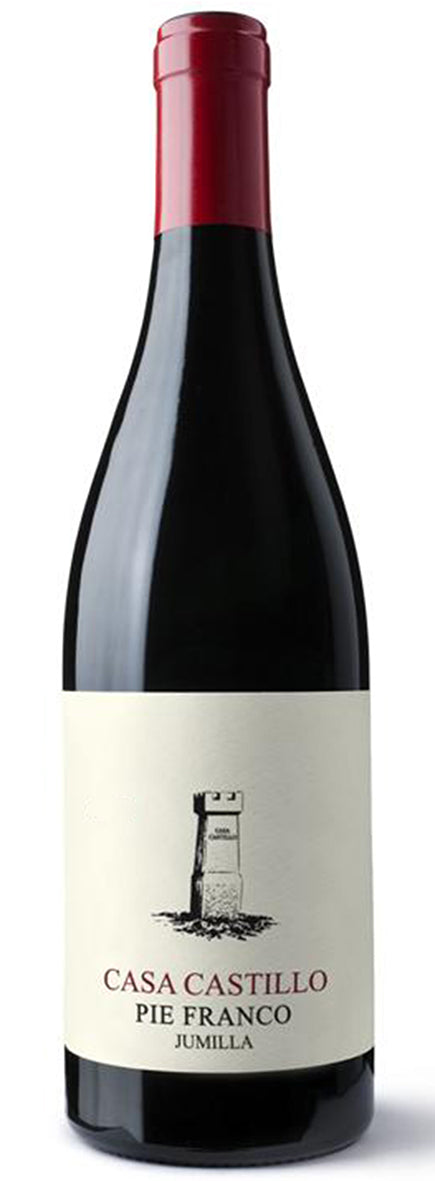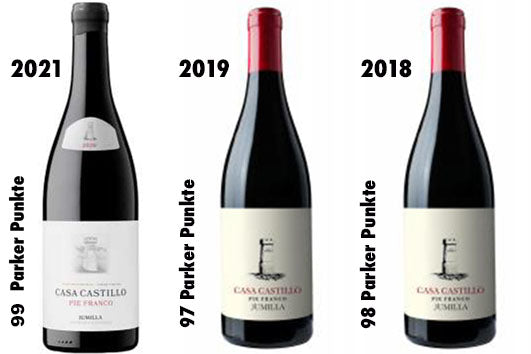Filter
Filter
23 Produkte
Casa Castillo
Casa Castillo Monastrell 2023 BIO
Angebot€11,00 EUR
(€14,67/l)
Casa Castillo
Casa Castillo, La Tendida 2023 BIO
Angebot€16,00 EUR
(€21,33/l)
Casa Castillo
Casa Castillo, El Molar 2021 BIO
Angebot€17,00 EUR
(€22,67/l)
Casa Castillo
Casa Castillo, El Molar 2023 BIO
Angebot€18,00 EUR
(€24,00/l)
Casa Castillo
Casa Castillo, Valtosca 2021 BIO
Angebot€20,00 EUR
(€26,67/l)
Casa Castillo
Casa Castillo, Valtosca 2023 BIO
Angebot€21,00 EUR
(€28,00/l)
Casa Castillo
Casa Castillo, Las Gravas 2021 BIO
Angebot€54,00 EUR
(€72,00/l)
Casa Castillo
Casa Castillo, Pie Franco 2016
Angebot€70,00 EUR
(€93,33/l)
Casa Castillo
Casa Castillo Cuvee N 2015
Angebot€74,00 EUR
Regulärer Preis€90,00 EUR
(€98,67/l)
Casa Castillo
Casa Castillo Cuvee N 2021
Angebot€74,00 EUR
Regulärer Preis€90,00 EUR
(€98,67/l)
Casa Castillo
Casa Castillo, Pie Franco 2018
Angebot€80,00 EUR
(€106,67/l)
Casa Castillo
Casa Castillo, Pie Franco 2019 BIO
Angebot€80,00 EUR
(€106,67/l)
blauWein
Casa Castillo 2023er Probierpaket
Angebot€80,00 EUR
Regulärer Preis€90,00 EUR
(€17,78/l)
Casa Castillo
Casa Castillo, Pie Franco 2016 Magnum
Angebot€140,00 EUR
(€93,33/l)
Casa Castillo
Casa Castillo, Pie Franco 2022 BIO
Angebot€140,00 EUR
Regulärer Preis€170,00 EUR
(€186,67/l)
Casa Castillo
Casa Castillo, Pie Franco 2021 BIO
Angebot€148,00 EUR
Regulärer Preis€170,00 EUR
(€197,33/l)
Casa Castillo
Casa Castillo, Pie Franco 2023 BIO
Angebot€148,00 EUR
(€197,33/l)
Casa Castillo
Casa Castillo, Pie Franco 2018 Magnum
Angebot€160,00 EUR
(€106,67/l)
Casa Castillo
Casa Castillo, Pie Franco 2019 BIO Magnum
Angebot€160,00 EUR
(€106,67/l)
Casa Castillo
Casa Castillo, Pie Franco 2021 BIO Magnum
Angebot€350,00 EUR
(€233,33/l)
Casa Castillo
Casa Castillo, Pie Franco 2023 BIO Magnum
Angebot€350,00 EUR
(€233,33/l)
blauWein
Casa Castillo Pie Franco Vertikale 18/19/21
Angebot€600,00 EUR
Regulärer Preis€660,00 EUR
(€133,33/l)
blauWein
Casa Castillo Pie Franco Magnum Vertikale 18/19/21
Angebot€600,00 EUR
Regulärer Preis€670,00 EUR
(€133,33/l)
Casa Castillo D.O.P. Jumilla
José Maria Vicente über seinen Garnacha Anbau.
Der ikonische Weingarten des Las Gravas.
Neue Monastrell Pflanzungen auf sehr kalkhaltigem Terroir.
José Maria Vicente über den Jahrgang 2023.
Casa Castillo D.O.P. Jumilla, Spanien
Rebfläche: 175 Hektar
Böden: braune Kalkböden und kalkhaltige Böden, karge Gesteinsböden
Rebsorten: Monastrell, Garnacha und Syrah.
Ab 2017 findet der Ausbau aller Weine ausschließlich im Fuder statt.
Ab 2019 ist der Betrieb ökologisch...
mehr Informationen zu diesem Weingut:
Versandkostenfrei?
Versandkostenfrei mit UPS ab € 90,- innerhalb Deutschlands
free shipping with UPS from € 240,- in europe
Customer service
Sichere Zahlung
Wir bieten Ihnen alle gängigen Zahlungsmethoden an!
